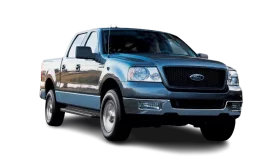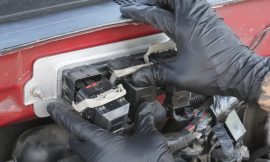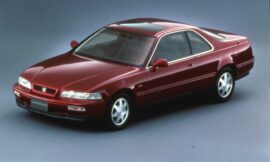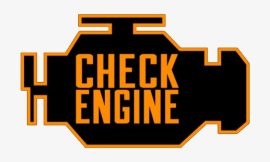The act of responsible oil disposal, particularly when it comes to motor oil, is an often overlooked but crucial aspect of DIY car maintenance. Oil recycling is not just an environmentally friendly practice, but it also ensures the longevity of our vehicles and the wellbeing of our communities. Discarding used motor oil improperly can have detrimental effects, both on the environment and on human health. Therefore, promoting and practicing responsible oil disposal is a necessity for all who engage in DIY car maintenance.
The Importance of Recycling Motor Oil
Recycling motor oil is crucial, not just for environmental protection, but also to avoid potential legal consequences. Every quart of improperly disposed motor oil can contaminate up to two million gallons of drinking water, highlighting the grave environmental implications. It can also harm wildlife, affect soil fertility, and pollute our waterways, leading to long-term ecological damage.
On the legal front, improper disposal of motor oil is considered illegal in many jurisdictions due to its hazardous nature. Penalties can range from hefty fines to imprisonment, depending on the severity of the violation. Additionally, cleanup costs for oil contamination can be burdensome and often fall upon the person responsible for the improper disposal. Therefore, recycling motor oil is not just an environmentally responsible decision, but also a legally prudent one.
III. How to Prepare for Oil Recycling
Before you begin the oil recycling process, it’s important to prepare appropriately to ensure safety and efficiency.
- Tools and Equipment: Gather the necessary tools and equipment. The most essential items include oil drain pans and proper containers. An oil drain pan is used to collect the used motor oil, while containers are necessary for storing the used oil before you take it to a recycling facility. These containers should be clean, leak-proof, and clearly labeled to prevent any mishandling.
- Safety Gear: Wear appropriate safety gear, such as gloves and protective eyewear, to protect yourself from any potential splashes or spills.
- Proper Environment: Ensure you’re working in a well-ventilated area away from any open flames or sparks due to the flammable nature of motor oil.
IV. Steps for Properly Containing the Oil
To properly contain the oil during the recycling process, you’ll need a tarp, a drip pan, and other necessary equipment. Follow these steps to ensure safe and effective containment:
- Setting up the Tarp: Lay down a large tarp or plastic sheeting under your car to protect the ground and catch any potential spills.
- Using the Drip Pan: Position your drip pan directly under the oil plug. Ensure it’s large enough to hold all the oil in your engine.
- Draining the Oil: Carefully unscrew the oil plug while avoiding contact with the hot oil. Allow the oil to drain into the pan, adjusting the pan’s position if needed.
- Other Equipment: Consider using funnels to prevent spills while transferring the oil into storage containers. Always use containers that are clean, leak-proof, and designed for used oil storage.
V. How to Empty the Oil Filter
The oil filter plays a critical role in the recycling process as it contains residual oil that can be harmful if disposed of improperly. Here’s how to empty it:
- Removing the Filter: Use an oil filter wrench to unscrew the filter. Be careful as it will be full of hot oil.
- Draining the Filter: Over your oil drip pan, puncture the dome end of the filter using a screwdriver. Allow the oil to drain from the filter into the pan for several hours.
- Disposing of the Filter Properly: Once the filter is empty, place it in a leak-proof bag. Take it to a recycling facility or auto parts store that accepts used filters.
IV. Proper Containers for Oil Storage
The choice of containers for storing used motor oil prior to recycling is of utmost importance, both for safety and effectiveness. Containers used for this purpose should be sturdy, leak-proof, and resistant to the corrosive nature of oil. Plastic containers are often the preferred choice as they meet these criteria and are readily available.
It’s crucial to avoid containers that previously held chemicals, food, or beverages to prevent contamination. Glass containers should also be avoided due to their potential to break and cause injury. Each container should be clearly labeled as ‘Used Motor Oil’ to prevent any misuse. Using the right containers can ensure safe transportation without spills, making the process of recycling that much easier and safer.
VI. Common Mistakes in Oil Recycling and Their Consequences
Several common mistakes can occur during the process of oil recycling. These mistakes can have far-reaching effects and thus it’s crucial to avoid them:
- Mixing Oil with Other Fluids: One of the most common mistakes is mixing used motor oil with other automotive fluids like brake fluid, power steering fluid, or antifreeze. These fluids can contaminate the oil, making it unsuitable for recycling. Additionally, mixing can lead to harmful chemical reactions that can cause injury or damage to the environment.
- Using Improper Containers: Using containers that aren’t suitable for oil storage, such as those that aren’t leak-proof or resistant to oil’s corrosive properties, can lead to spills and leaks. These can cause environmental harm and may also lead to potential legal penalties.
- Improper Disposal of Oil Filters: When used oil filters aren’t drained fully or aren’t disposed of correctly, they can pose environmental hazards due to the residual oil they contain.
- Neglecting Safety Measures: Failing to adopt necessary safety measures, such as using protective gear or working in a well-ventilated area, can lead to personal injury and fire hazards.
VII. Tips for Properly Storing Collected Motor Oil
When storing collected motor oil for recycling, it’s crucial to follow the best practices to ensure safety and to maintain the oil’s recyclability. Here are some key tips:
- Using the Right Containers: As previously mentioned, use containers specifically designed for oil storage. They should be sturdy, leak-proof, and sized appropriately for the volume of oil you’re storing. Avoid using containers that previously held chemicals, food, or beverages.
- Labeling the Containers: Always label your containers clearly as ‘Used Motor Oil’ to prevent any confusion or accidental misuse.
- Storing in a Cool, Dry Place: Store the containers in a cool, dry location away from direct sunlight. This helps maintain the oil’s properties and prevents the containers from degrading.
- Keeping Away from Children and Pets: Ensure the stored oil is out of reach of children and pets. Used motor oil can be harmful if ingested or come in contact with skin.
- Avoiding Heat and Flames: Because motor oil is flammable, keep it away from open flames, sparks, or locations with high heat.
- Checking for Leaks: Regularly check the containers for leaks to prevent accidental spills. If a leak occurs, transfer the oil to a new container immediately.
- Limiting Storage Time: Try not to store used motor oil for too long. The sooner it’s recycled, the better it is for the environment.
By following these storage tips, you can ensure that your collected used motor oil is stored safely and properly until it can be recycled.
VII. Options for Oil Recycling
There are several options available for the recycling of used motor oil. One common approach is through Curbside Recycling Programs. These programs, often operated by city or municipal governments, involve the collection of used motor oil directly from your home. You typically need to place the oil in a special container, separate from regular recyclables, and clearly label it. Scheduling and guidelines for these programs vary, so it’s worth checking with your local waste management facility.
Another popular method is through Drop-off Locations. Many auto repair shops, recycling centers, and parts stores serve as collection points for used motor oil. These establishments have the infrastructure needed to handle and recycle the oil properly. Some places even offer incentives for bringing in used motor oil, further encouraging this environmentally-friendly practice.
Lastly, certain Community Recycling Events also accept used motor oil. These events are typically held periodically (e.g., annually or semi-annually) and provide an opportunity for community members to dispose of various kinds of household waste, including motor oil. As with the other recycling methods, remember to store and transport the oil in appropriate, clearly labeled containers to prevent spills and contamination.
By leveraging these recycling options, you can contribute to environmental conservation while ensuring the proper handling and disposal of used motor oil.
VIII. Conclusion
Recycling used motor oil is a pivotal practice that plays a significant role in environmental conservation. When disposed of improperly, used motor oil can contaminate water sources and soil, posing a severe risk to ecosystems. However, when correctly recycled, it can be refined and re-used, saving valuable resources and reducing our ecological footprint. The process involves careful collection, using reliable, leak-proof containers, and avoiding the mixing of oil with other fluids. Proper storage is crucial, as is opting for responsible disposal through curbside recycling programs, drop-off locations, or community recycling events. By adhering to these steps, you’re not just disposing of waste—you’re playing a part in the grander scheme of maintaining a healthier and sustainable world. Let us remember, recycling is not just an option, but a responsibility we bear for our planet and future generations.
IX. Additional Resources
- [American Petroleum Institute (API)](http://www.api.org/): API provides information on oil recycling and offers a directory of certified used oil collection centers.
- Earth911: This site offers a comprehensive database for finding recycling programs and drop-off locations in your area, including those for motor oil.
- RecycleOil.org: This website offers resources on oil recycling, including how to recycle oil and where to find recycling locations.
- [U.S. Environmental Protection Agency (EPA)](http://www.epa.gov/): The EPA provides guidelines and information on managing used oil and recycling programs.
- AutoZone: AutoZone offers a free oil disposal program. You can bring in used motor oil in a leak-proof container, and they will handle the recycling.
- Advanced Auto Parts: Similar to AutoZone, this auto parts retailer also offers free oil recycling at their stores.

















